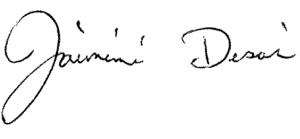Is the Fed Engineering a Recession to Crush Inflation? The S&P 500 (SPY) declined more following the June CPI report which showed that inflation was worse than expected at 9.1% vs 8.8%. As a result, the odds of a...
This story originally appeared on StockNews

The S&P 500 (SPY) declined more following the June CPI report which showed that inflation was worse than expected at 9.1% vs 8.8%. As a result, the odds of a 100 basis point hike at the July meeting and a 75 basis point hike at the September meeting increased. Ironically, we are also seeing the odds of a rate cut increase in Q1 of next year as well. Thus, it's becoming clear that the Fed is engineering a recession to crush inflation. It's a complete 180 from the Fed's posture in 2020 and 2021 when it was willing to risk inflation in order to ensure that the economy didn't fall into a deflationary spiral. Recession means that earnings are going to tumble lower, but there is a silver lining in that longer-term rates will also fall as well which will provide relief to certain parts of the market. Today's commentary will discuss these developments. Read on below to find out more….
(Please enjoy this updated version of my weekly commentary published July 14th, 2022 from the POWR Stocks Under $10 newsletter).
Over the last week, the S&P 500 (SPY) is down by 2.8%, while the Nasdaq was down 3.1% and the Russell 2000 lower by 3.4%.
The weakness wasn't too surprising given some profit-taking from last week's rally and the worse-than-expected inflation reported which sent stocks tumbling on Wednesday.
Interestingly, the last 2 days have featured gap downs that were closed by the end of the day.
There was similar action in long-duration bonds which were also bought following initial weakness, implying that bond investors also see this as closer to the end of the inflationary spiral rather than the beginning.
At the same time, the temperature is only going to get turned even higher as the Fed is determined to keep hiking until inflation starts to materially move lower.
In last week's trade alert, I said that it's essentially "overcooking' the economy to totally kill inflation. Something like a hard reset even if a spike in unemployment or a nasty recession is a consequence.
So, the ultimate takeaway is that stocks are facing the dual threats of a hawkish Fed and a slowing economy, but there is a bullish tailwind for certain parts of the market due to longer-term rates turning lower.
What's Next?
At first glance, the strength in long-duration assets doesn't make sense with such a strong inflation print, and what it means for the Fed.
In fact, this combination of rising inflation and a hawkish Fed is exactly what caused these assets to underperform for nearly 2 years.
Here's where studying past market cycles are instructive and can help investors gain better clarity.
Think of a car, traveling at a high speed, but the driver slams on the brakes. Yes, for a short while, the car will keep moving forward, but it will inevitably stop. This is where we are now.
So, I'm expecting more weakness in cyclical assets but strength in long-duration assets.
What's Working
Given this view, it's no surprise that I'm more interested in long-duration assets. These are assets that benefit from weakness in longer-term rates.
Think about consumer staples, defense and aerospace, utilities, pharmaceuticals, housing, healthcare, etc.
And, we have increased exposure to these parts of the market which is one reason that our portfolio is flat over the past week, while the broader stock market (SPY) is down nearly 3%.
However, the one challenge with stocks under $10 is that there are simply fewer of these blue-chip, long-duration assets.
But, we are finding some opportunities in biotechs and healthcare and would look to increase exposure even more with more market weakness.
Overall, we still have to be mindful of the downside and focus more on managing risk rather than chasing returns.
Bear markets are about survival and being able to take advantage of the amazing opportunities that are on the other side.
What To Do Next?
If you'd like to see more top stocks under $10, then you should check out our free special report:
What gives these stocks the right stuff to become big winners, even in the brutal 2022 stock market?
First, because they are all low priced companies with the most upside potential in today's volatile markets.
But even more important, is that they are all top Buy rated stocks according to our coveted POWR Ratings system and they excel in key areas of growth, sentiment and momentum.
Click below now to see these 3 exciting stocks which could double (or more!) in the year ahead.
All the Best!
Jaimini Desai
Chief Growth Strategist, StockNews
Editor, POWR Stocks Under $10 Newsletter
SPY shares . Year-to-date, SPY has declined -19.84%, versus a % rise in the benchmark S&P 500 index during the same period.
About the Author: Jaimini Desai

Jaimini Desai has been a financial writer and reporter for nearly a decade. His goal is to help readers identify risks and opportunities in the markets. He is the Chief Growth Strategist for StockNews.com and the editor of the POWR Growth and POWR Stocks Under $10 newsletters. Learn more about Jaimini's background, along with links to his most recent articles.
The post Is the Fed Engineering a Recession to Crush Inflation? appeared first on StockNews.com









